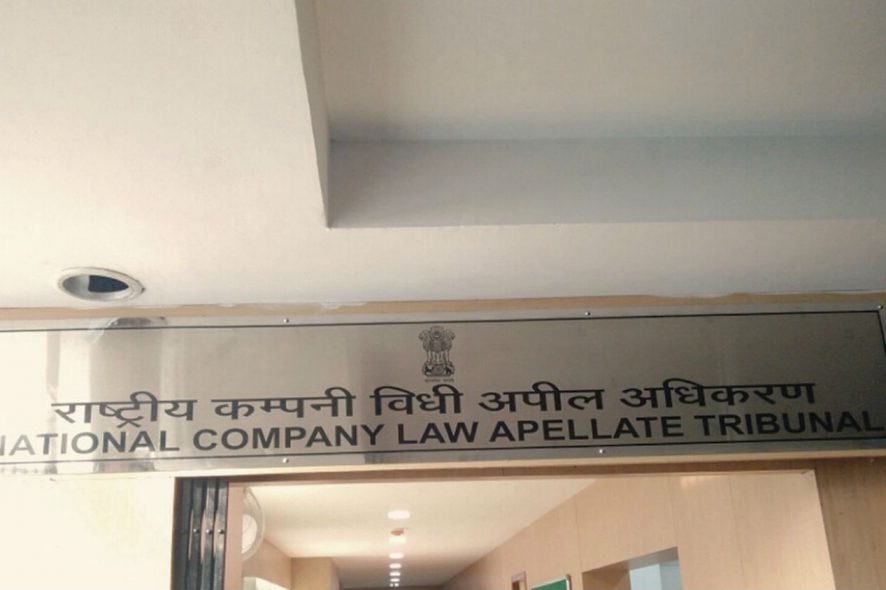National Company Law Appellate Tribunal-The Coram of Justice M. Venugopal, Acting Chairperson and Kanthi Narahari, Technical Member while concurring with the adjudicating authority’s order and dismissing the appeal, held,
“in the light of the detailed upshot, and considering the facts and circumstances of the instant case in a conspectus fashion and keeping in mind the ingredients of the ‘Articles of Association’ to the effect that the nominee Directors have a vital influence in regard to the working of the ‘Corporate Debtor’, this Tribunal unhesitatingly comes to a consequent conclusion that the Appellant is a ‘related party’ and the view arrived at by the ‘Resolution Professional’ to include the Appellant/TSTPCL as member of the ‘Committee of Creditors’ is clearly unsustainable in the eye of law”.
In the pertinent matter impugned order of the NCLT, Hyderabad Bench, Hyderabad was challenged where it refuted the submission of the Resolution Professional that they are only the nominated members with no say in the functioning of the company and the Corporate Debtor. The appellants contended that the adjudicating authority had failed to appreciate the term ‘related party’ as construed under Section 24(5) of the Insolvency and Bankruptcy Code, 2016 in consideration of the Memorandum of Understanding, Articles of Association, Loan Agreement, Shareholding Agreement and Share Transfer Agreement.
The adjudicating authority was of the opinion that the Resolution Professional squarely fits into the definition of ‘related party’ under Section 5(24) (a), (h), (j), (l) and (m) of the Code. It even stated that, “ the role and responsibility of the Directors is to protect the interests of the Corporate Debtor and not to merely sit in the Board meetings of the corporation”.
The Tribunal while concurring with the adjudicating authority, opined,
“the expression ‘control’ in Section 29A(c) of the ‘I&B’ Code symbolizes only the positive control i.e. that the mere power to block special resolutions of a Company cannot amount to control. In reality, the word ‘control’ juxtaposed with the term ‘management’ means ‘De facto control of actual management or policy decisions that may be or are in reality taken”.
It further stated that,
“To put it precisely, the part played by the two nominee Directors clearly point out that the first Respondent / Company acts on the advice, direction and instructions of the Appellant in its normal business affairs relating to the first Respondent. As such, this Tribunal is of the earnest opinion that the Appellant ‘squarely comes within the ambit of related party as per clause (f) of Sub Section 24 of section 5 of the Code”.
The Tribunal, therefore, considering the circumstantial matrix, summed up by stating,
“as perceived from the ‘Articles of Association’ and the requisite majority needed for taking important business decisions, the conduct of the business of the First Respondent, the establishment of First Respondent Company, all considered in an integral and cumulative manner will exhibit the noteworthy influence of the Appellant in issues concerning the First Respondent. In this manner also, the First Respondent is treating the Appellant as ‘Related Party’”.
[Telangana State Trade Promotion Corporation v. A.P. Gema & Jewellery Park Private Limited, Company Appeal (AT)(CH) (Ins.) No.54 of 2021, decided on 21-09-2021]
Agatha Shukla, Editorial Assistant has reported this brief.
Counsel for the Parties:
For the Appellant:
Mr. Ravi, Senior Counsel For R.S. Associates, M.
Naga Deepak, B. Lokeshwar Reddy, Rohan Aloor
and Himangini Sanghi, Advocates.
For the Respondents:
Mr. Y. Suryanarayana, Respondent No. 1
Mr. Satish Parasaran, Senior Advocate for M/s.
Ravindra Bose & R. Saravanan, Respondent No.2






